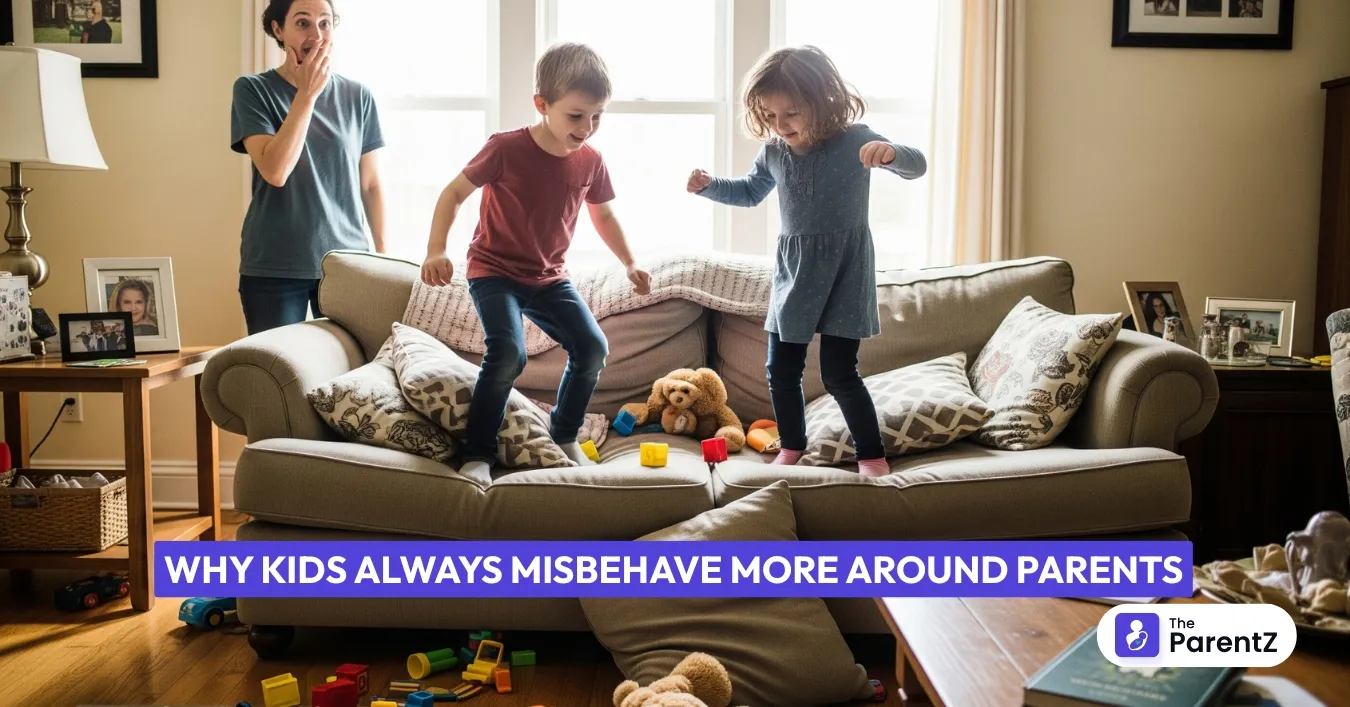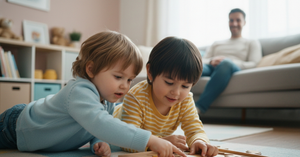You've probably been there. Your child is an absolute angel at school, gets glowing reports from teachers, and everyone tells you how well-behaved they are. But the moment you pick them up? It's like a switch flips. The whining starts, the tantrums begin, and you're left wondering if you're secretly the worst parent in the world.
Take a deep breath. You're not alone, and you're definitely not a bad parent.
The Safe Harbor Theory
Think about your own day for a moment. When you're at work, you hold it together. You smile at difficult colleagues, stay professional during stressful meetings, and keep your emotions in check. But when you finally get home and see your partner or family? That's when you might finally let out that frustrated sigh or admit you had a terrible day.
This is exactly what's happening with your child, except they don't have the words to say, "I held it together all day at school, and now I need to fall apart a little bit."
Your home and you represent safety. Children instinctively know that while they need to be "good" for teachers, babysitters, and other adults, they can show their real emotions with you. In their minds, you're the one person who will love them no matter what. So when they're tired, overwhelmed, or frustrated, they save it all up for the person they trust most.
The Emotional Regulation Struggle
Being "good" all day is exhausting for kids. Their little brains are still developing the part that controls emotions and impulses. Imagine trying to hold a heavy weight above your head all day; eventually, your arms would give out.
That's what emotional regulation feels like for children. They spend hours at school following rules, sitting still, sharing toys, and using their "inside voices." By the time they see you, their emotional muscles are tired, and they simply can't hold up that "good behavior" weight anymore.
When your 5-year-old melts down over the wrong color cup after being perfect at preschool all day, they're not being manipulative. They're being human.
The Attention Economics
Children are little economists when it comes to attention, and they've figured out something important: negative attention from you is still attention from you.
Think about it from their perspective. At school, they're one of twenty kids competing for the teacher's notice. At home, they're competing with your phone, work emails, dinner prep, and a dozen other responsibilities. But when they misbehave? Suddenly, they have your complete, undivided attention.
Your child doesn't wake up thinking, "I want to make Mom's life difficult today." They wake up thinking, "I want to connect with Mom today." Sometimes misbehavior is simply their clumsy attempt at connection.
The Testing Ground
Your child feels safe enough with you to test boundaries because they trust that your love is unconditional. With other adults, they're not sure where they stand, so they play it safe. But with you? They can push limits because deep down, they know you're not going anywhere.
This testing isn't defiance – it's development. They're literally learning how the world works by seeing what happens when they push against the edges. It's like they're scientists, and you're their laboratory.
The Emotional Dumping Zone
Sometimes your child has had a hard day, just like you do. Maybe someone was mean to them at school, or they felt left out at lunch, or they couldn't understand the math lesson. But unlike adults, kids don't have healthy ways to process these feelings.
So they bring all those big emotions home to the person they trust most. Your child might not be able to say, "I felt embarrassed when I couldn't read that word out loud today," but they can throw themselves on the floor when you ask them to put their shoes away.
What This Means for You
Understanding this doesn't mean you should accept all misbehavior or stop setting boundaries. Instead, it means you can respond from a place of compassion rather than frustration.
When your child acts up after a day of being "good" elsewhere, remember that this is actually a sign of your strong relationship. They feel safe enough with you to be their authentic, imperfect selves.
Try responding with, "You seem like you're having big feelings right now. What was hard about today?" Sometimes, just acknowledging their emotional state can help them regulate faster than any consequence.
The Fine Line: When Understanding Becomes Enabling
Here's where many loving parents get stuck. You understand why your kids misbehave more with you, so you start making excuses for every outburst. "They had a long day," you tell yourself as your 7-year-old screams at you for the third time this week. "They're just comfortable with me."
But here's the thing: while your child needs a safe space to express emotions, they also need to learn that you're not their emotional punching bag.
When we constantly excuse bad behavior because we understand the "why" behind it, we accidentally teach our kids that it's okay to treat the people they love poorly. And that's a dangerous lesson.
Setting Boundaries with Compassion
The goal isn't to become a cold, unfeeling parent who dismisses their child's emotions. The goal is to help your child learn that having big feelings is okay, but hurting others with those feelings is not.
Here's what this looks like in practice:
You can acknowledge your child's emotions while still holding them accountable. "I can see you're really upset about having to leave the park. It's hard when fun things end. And it's still not okay to hit me. Let's talk about better ways to show me you're angry."
You can be their safe person without being their emotional dumping ground. "I love you no matter what, and I'm here to help you with your big feelings. I'm not here to be yelled at. Let's try again with a respectful voice."
Conclusion
Your child's "worse" behavior around you isn't a reflection of your parenting skills; it's a reflection of your bond. They save their hardest moments for you because you're their safe person. That's not a burden; it's actually a beautiful thing.
The next time your angel-at-school turns into a hurricane-at-home, remember: they're not giving you their worst because they don't respect you. They're giving you their worst because they trust you with it.
But always remember that being your child's safe person doesn't mean accepting disrespect. It means being the steady, loving guide who helps them learn that all feelings are okay, but not all behaviors are.








Be the first one to comment on this story.